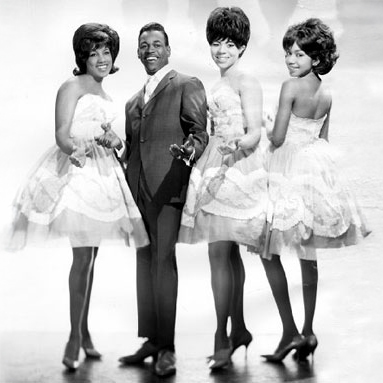The Orlons

Inducted: 2025
While they may have been named after a chemical heavy Dupont fabric, there was nothing synthetic about The Orlons’ sound.
Effervescent and joyfully soulful, the church-rooted vocal layers of Rosetta Hightower, Shirley Brickley and Marlene Davis, plus the deep bass harmonics and interjections of Stephen Caldwell, made for a very organic, elevating and fun listening experience. Their invitation to get up and move became virtually irresistible when the quartet put their pipes to mid-tempo danceable ditties. Producers Dave Appell and Kal Mann scored with a slap-happy combo, heavy on the honkin’ sax and rollicking drum fills.
Most successful was The Orlons’ 1962-63 trifecta of million sellers “The Wah-Watusi,” “Don’t Hang Up,” and hippie-celebrating “South Street,” the latter a song written about a perennial Philly hangout “that also worked in other places we visited on tours” (Dick Clark’s Caravan of Stars) “’cause almost every town had a South Street,” shared Caldwell.
Originally an all-girl quartet (Audrey and the Teenettes) in their West Philly, Shoemaker Jr. High days, the ensemble transitioned into their hit formation as The Orlons at Overbrook High School. A hot spot for both jocks and musicians with a dynamic cultural mashup of neighborhood students – about half African-Americans, half Jewish – The Dovells also were spawned at the “brook” and lead singer Len Borisoff (aka Len Barry) kindly connected The Orlons to his girl-group-seeking record label, Cameo.
Initial singles with Marlene (“I’ll Be True”) and Shirley (“Mr. Twenty-One”) in the lead vocal slot failed to ignite. But after they scored a major support role backing Dee Dee Sharp on her breakout hit “The Mashed Potato,” The Orlons were given a new “dance sensation” of their own to debut on American Bandstand – “The Wah-Watusi” – this time with Rosetta singing her first of what would be many leads to follow.
Burning bright, not long, Davis left the group in 1963 and Caldwell in 1964, with original Teenette Audrey Brickley rejoining and making it an all-girl group again. Rosetta was enticed to move to London for good in 1968. Twenty years later, Caldwell un-retired and brought new Orlons ensembles to the circuit with the help of Jean Brickley, Alberta Crump and Madeline Morris.